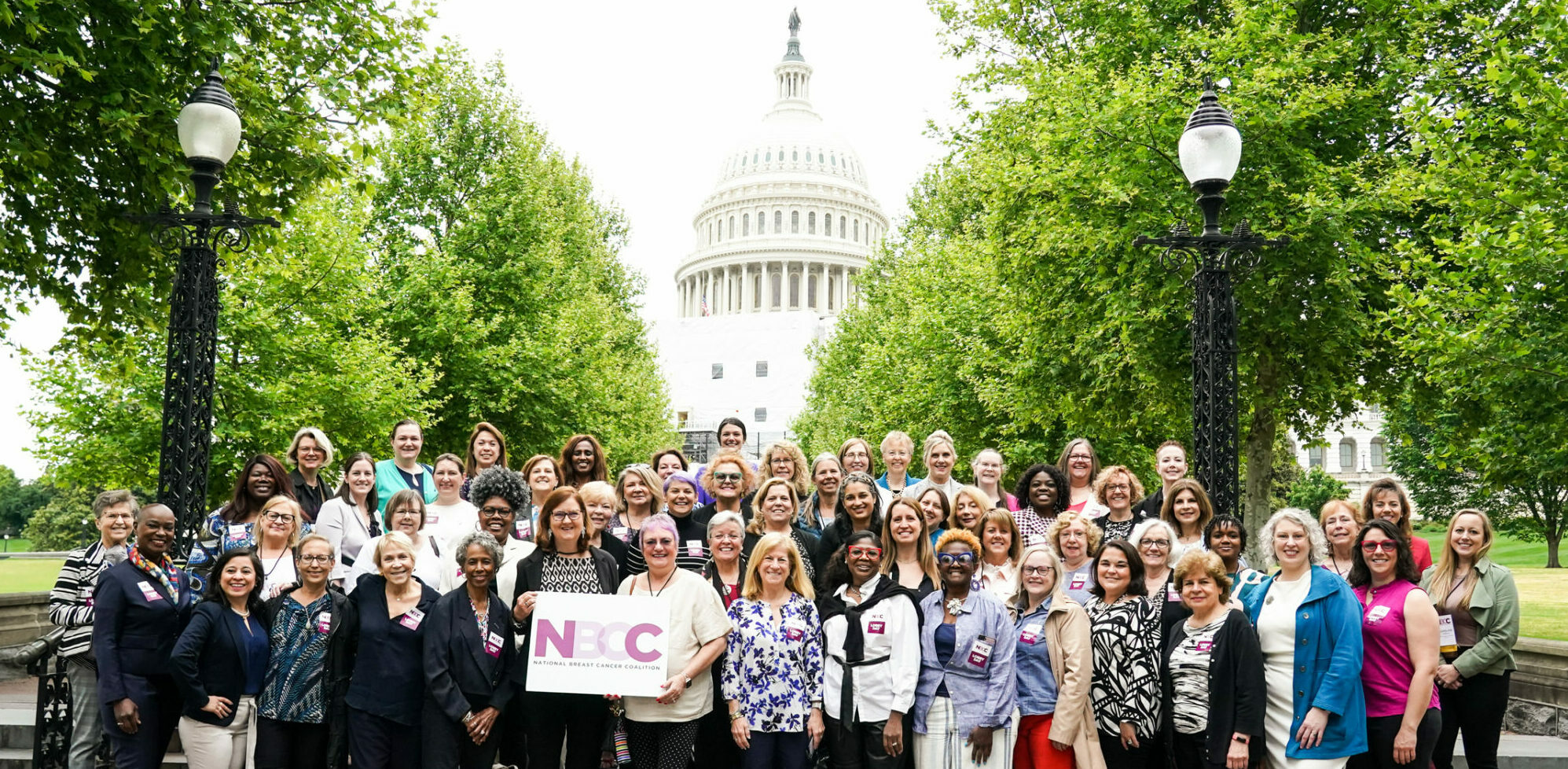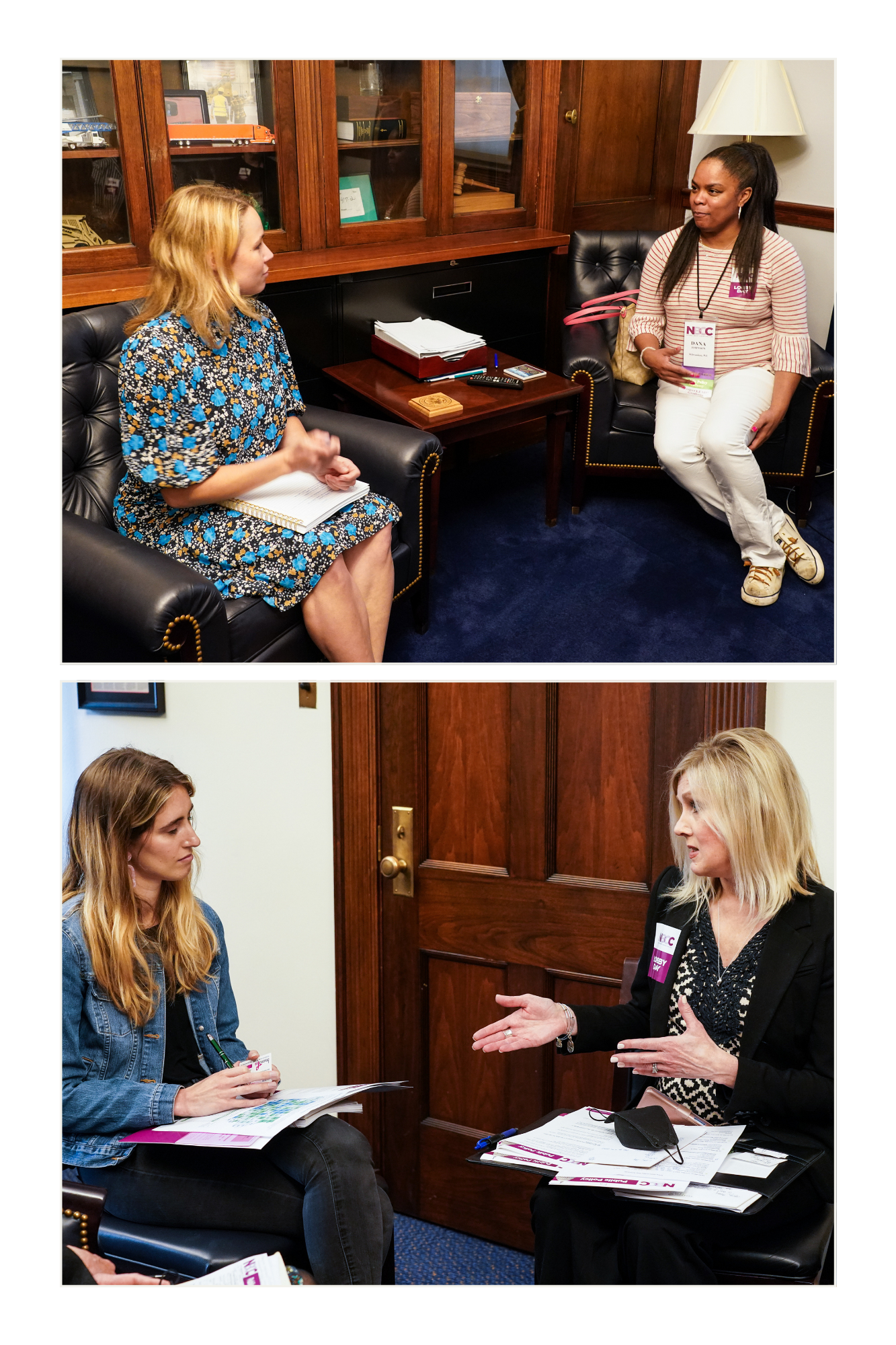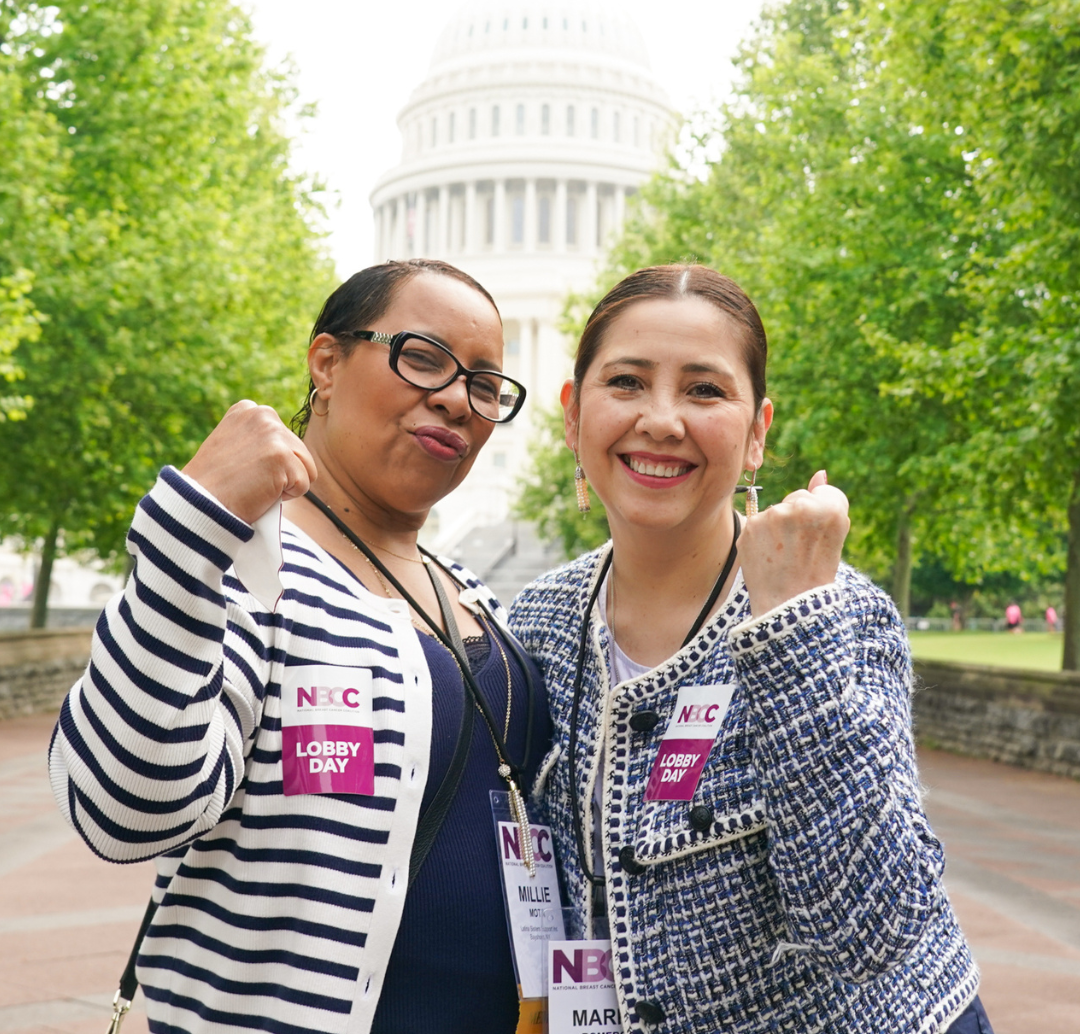More than 3.8 million women and thousands of men live with breast cancer in the United States. In 2024, there will be an estimated 313,510 new cases of invasive breast cancer diagnosed in women, 2,790 new cases diagnosed in men, and an additional 56,500 new cases of ductal carcinoma in situ (DCIS) diagnoses in women.
In the United States alone, an estimated 42,250 women and 530 men will die of breast cancer this year.
We need more research to understand what causes breast cancer, how to prevent it, and how to stop it from metastasizing or cure it once it does.
Public policy impacts every aspect of breast cancer. Since NBCC’s inception, we have been the leading political activists on breast cancer issues. From increasing the amount of breast cancer research funding to expanding access to care for women and men with breast cancer to working to ensure drug prices reflect real value for the consumer, NBCC has successfully challenged our elected officials to play a role in ending breast cancer.
Learn what NBCC is asking candidates and public officials to support—from funding meaningful breast cancer research to expanding access to care for all—and join the movement to end breast cancer this election year. Here’s how.

To stop people from getting and dying from the disease, we need systems change. We must make our voices heard and challenge our current and future elected officials to take action to end this disease.
Where do Vice President Kamala Harris and former President Donald Trump stand on the health policy issues that matter to National Breast Cancer Coalition advocates?
Research
The federal government must:
Access
Health care is a basic human right. The federal government must guarantee that all individuals have access to patient-centered, evidence-based, high-quality and affordable health care and:
Influence
The federal government must ensure that trained and educated advocates, who represent a constituency, and have been personally affected by the disease, have a seat at all tables where breast cancer research, health care, and policy decisions are made and implemented.


1. Attend candidate events like debates, town halls, and other campaign stops to find out where they stand on NBCC’s priorities and platform. (Find local candidate events on the nonpartisan VOTE411.org.)
Not sure what to ask? Use NBCC’s advocate guide as a starting point.
2. Follow and engage with your congressional candidates on social media. Our social media guide offers tips for interacting with candidates online and sample posts to ask them to prioritize breast cancer.
3. Help your networks get ready to vote. Check in with your social groups, support/patient groups, treatment centers, and others in your network. Does anyone need help verifying their voter registration, requesting an absentee or vote-by-mail ballot, or getting to the polls on Election Day? Share your voting plan and offer to assist! Send people to Vote.org to find their localized info.
$150 Million/Level Funding for the Department of Defense (DOD) Breast Cancer Research Program (BCRP) for FY2025: The DOD BCRP funds innovative research aimed at ending breast cancer. Since its 1992 launch, NBCC’s advocacy has brought about nearly $4.4 billion for breast cancer research.
Passage of the Metastatic Breast Cancer Access to Care Act: This legislation would waive the 24-month waiting period for Medicare and the five-month waiting period for Social Security Disability Insurance benefits for eligible individuals with Metastatic Breast Cancer.
Find out if your representative and senators support the bill.
Preservation of the Medicaid Breast and Cervical Cancer Treatment Program: NBCC remains committed to ensuring everyone screened and diagnosed with breast cancer has access to the treatment they need.
Guaranteed Access to Quality Care for All: NBCC supports initiatives that expand access to Medicare while offering a private insurance option, automatically enrolling those without access to other coverage, and providing guaranteed benefits, including primary and preventive care, hospital services, and prescription drug coverage. NBCC believes that no individual should be denied coverage due to an inability to pay.
Access to Affordable and Effective Therapies: NBCC supports policies that address systemic deficiencies in the law, regulation, and science policy that result in the approval of drugs that do not significantly extend or save lives and whose prices are not based on value or effectiveness.
Food and Drug Administration Reform: NBCC supports a drug approval system that prioritizes approving drugs with clinically meaningful benefits for patients, and seeks to address systemic deficiencies in FDA regulation and the drug development process, including reforms to the accelerated approval pathway and the use of unvalidated surrogate endpoints.
Ensure the Participation of Educated Patient Advocates in Science Research and All Levels of Health Care Decision-Making: NBCC continues to work to ensure educated patient advocates representing a constituency have a meaningful seat at the table in all levels of health care decision-making affecting their lives.